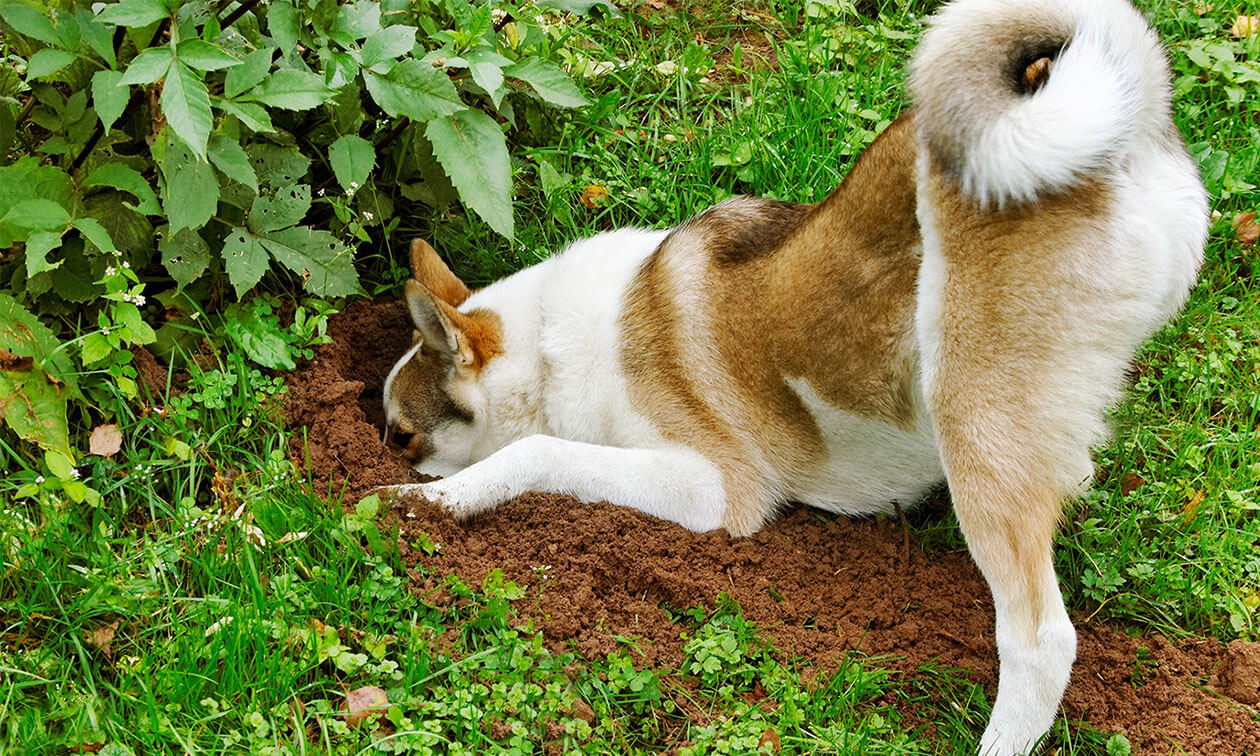Digging is a natural behavior for dogs that can sometimes become quite a nuisance for dog owners. If your yard or garden is dotted with holes and divots, it can be problematic. Understanding why dogs dig and providing them with appropriate outlets for this behavior is essential for the bond between you and your pet.
Why Do Dogs Dig Holes?
Even though your dog’s digging may annoy you, your dog has a good reason for digging. There are a number of different reasons why dogs dig holes.
- Instinct. Digging is a deeply ingrained instinct in dogs that traces back to their wild ancestors. Dogs would dig to create a comfortable resting spot, escape extreme temperatures , or conceal food. Even though our domesticated dogs have a cushy life now, this instinctual behavior can still manifest.
- Boredom. Dogs who are bored or lack mental enrichment may resort to digging to entertain themselves. A lack of exercise, playtime, or interactive activities can contribute to excessive digging behavior.
- Seeking comfort and to stay cool. During hot weather, dogs may dig holes in cool earth to find relief from the heat. The natural temperature regulation the soil provides can help them find a cooler spot to rest.
- Anxiety, fear, or trying to escape. Some dogs may resort to digging as a response to anxiety, fear, or as an attempt to escape certain situations. If your dog is exhibiting anxious or fearful behaviors along with digging, it is important to address the underlying cause. You may want to ask your veterinarian if you think your dog is digging because of anxiety.
How To Stop Your Dog from Digging
Despite your dog’s good reasons for digging, it’s understandable that you don’t want holes everywhere your dog goes. Fortunately, there are other ways you can channel your dog’s energy.
Provide Sufficient Exercise and Mental Stimulation
If your dog is digging out of boredom and excess energy, meeting those needs in other ways will make them less likely to engage in digging behavior. Regular physical exercise through walks, runs, or play, as well as mental enrichment through training and puzzle toys, can help redirect energy and reduce digging tendencies.
Create a Dig-Friendly Environment
For dogs that were bred to dig, encouraging this behavior can help manage it. Create a designated dig pit in your yard to provide an outlet for your dog's digging needs. This area should be filled with loose soil or pet-safe sand and can be bordered with rocks or wood panels. Encourage your dog to use this area by burying toys or treats for them to discover.
Redirect and Reinforce
Supervise your dog when they are outside, especially during the early stages of training. If you notice them starting to dig in an undesired area, calmly redirect their attention to a more appropriate activity, such as playing with a favorite toy or digging in their designated dig pit instead.
Positively reinforce your dog with treats, praise, or playtime when they successfully redirect their behavior to the desired target. By positively reinforcing desired behavior, you can encourage them to focus their digging instincts on the designated area or eliminate the behavior completely.
Address Underlying Issues
If your dog's digging behavior persists despite the above strategies, consider consulting with a professional dog trainer or behavior consultant. They can help identify any underlying issues, such as anxiety or fear, and develop a tailored behavior modification plan. A visit to your veterinarian is also helpful to rule out medical triggers.
Understanding why your dog is digging is the first step toward effectively managing this normal canine behavior. Providing ample exercise, mental stimulation, and a designated dig pit can redirect their digging tendencies and fulfill their instinctual needs.
Remember to be patient, consistent, and reward alternative behaviors to digging. With time, training, and the right environment, you can help your dog enjoy a balanced and fulfilling life while minimizing the impact of their digging.
ZPC-03488



